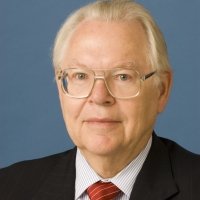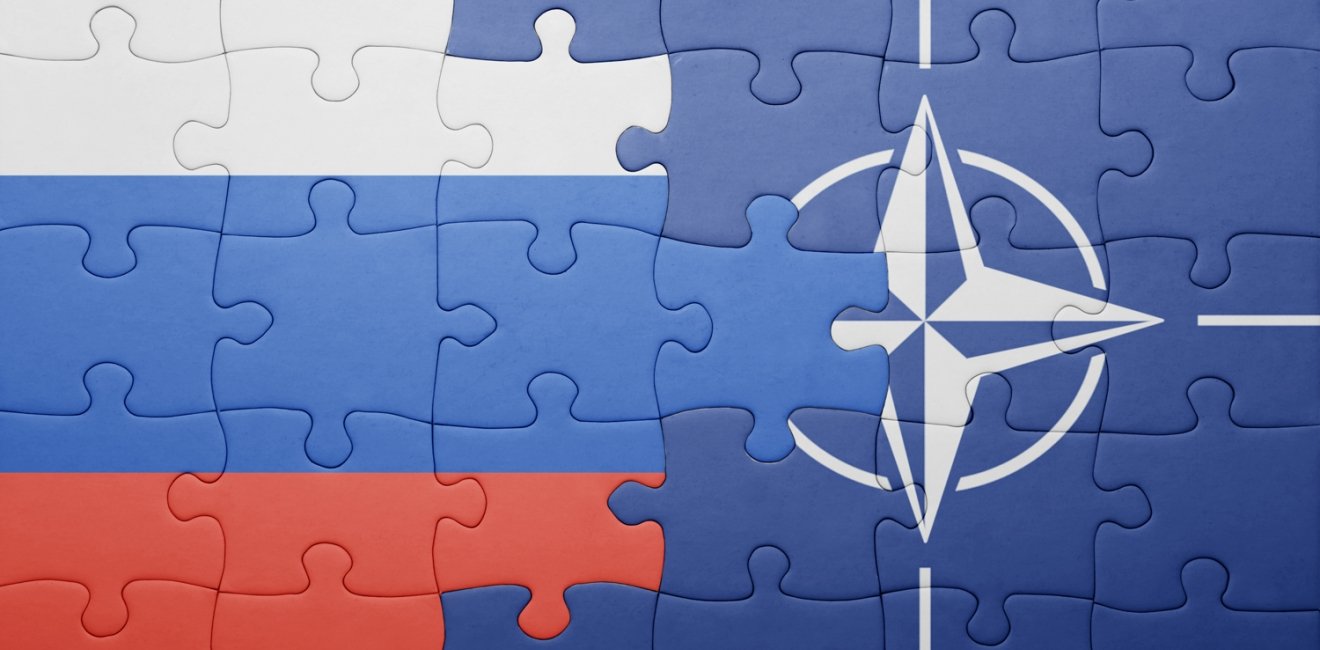
A blog of the Kennan Institute
Amb. Collins delivered the following remarks at the Kathryn and Shelby Cullom Davis Awards Dinner on November 30, 2016, where he received the Woodrow Wilson Award for his contribution to public service related to U.S.-Russia relations.
Thank you; thank you all.
Let me begin with a word of special appreciation to Jane Harman and the Wilson Center and of special thanks to the Kennan Institute and Matt Rojansky. I cannot begin to say how deeply I value their recognition. These institutions represent something very special to anyone who has spent a life in public service, and they embody a commitment to making the quality of our public discourse and debate as good as it can be.
I also want to say thank you to those in this room and to many others who cannot be with us this evening who supported, encouraged, and guided me over six decades. You know who you are, and I want you know how much I am in your debt.
And finally to Naomi and my two sons; for decades you endured sacrifice in normal life, long absences of a husband and father, and too many missed moments during a career that took me away both physically and mentally from what you could have expected in a spouse and father.
So, thank you to all who have understood, endured, and supported my life’s preoccupation with Russia and its region and with America’s ever present responsibility to build productive and positive relations with that other great Euro-Atlantic power.
Now as we gather this evening, there is no question our two governments are doing poorly at meeting this responsibility. Our bilateral relations are at their lowest point since Naomi and I watched the Soviet Union come to its end. The Cold War is over, but it seems almost daily that Russia and the U.S. are determined to reignite a conflict we thought dead and buried. And the steady erosion of institutions, diplomacy, and patterns of cooperation that kept the peace between Moscow and Washington even in the deepest freeze of Cold War increasingly leaves us without the tools required to create a stable and secure Euro-Atlantic world.
As I reflect on where we are and what is taking place today, I am drawn to the idea that we are at another time of decision no less basic than our predecessors confronted after World War II. Then the emergence of nuclear weapons and massive upheaval in the geo-political and geo-economic order of Europe demanded new institutions, new security structures, and new patterns of diplomacy to prevent another catastrophe and assure the region’s peace.
The leaders at that time, divided by ideology and an absence of trust initially pursued their security in isolation. Seeing themselves in a global struggle for survival, they built competing military blocs and expanded nuclear arsenals relying on deterrence to keep the peace. Ultimately this path gave birth to a destructive nuclear arms race and a rigid bi-polar security system that divided Europe for most of the rest of the twentieth century. But it was also the time when the single most significant deterrent to conflict, the conviction on both sides that, in the words of President Reagan, a nuclear war cannot be won and must never be fought, led leaders to seek alternatives to blind continuation of policies that offered no promise of a foundation for more permanent peace.
My high school, college, graduate study and the first two and a half decades as a diplomat were shaped by that outcome of these conclusions and events. For four decades after the immediate post-War period, steady work of diplomacy and management of confrontation worked to produce institutions and practices of engagement between East and West that both strengthened the peace in Europe and managed the dangers of nuclear weapons until ultimately the very basis for confrontation and ideological warfare disappeared.
But the end to division and new unity of purpose that seemed to blossom with the end of the Cold War and disappearance of the USSR has left the region with unfinished tasks. Tectonic shifts across the Euro-Atlantic region – the emergence of fifteen new sovereign states in East Europe/Eurasia, the expansion of the NATO alliance and European Union – have ended the twentieth century’s bi-polar world of opposing military blocs and the old ideological confrontation between East and West. Market economies have removed economic barriers between East and West and fostered economic integration; and unprecedented freedom of movement by peoples across the region has lowered traditional national boundaries.
But these developments have also given rise to opposing trends – trends that today have revived divisions and challenged the very idea of Euro-Atlantic integration. The Western project to shape regional security based on Western institutions and ideas have increasingly been met by Russian efforts to promote a very different Eurasian alternative. And economic hard times, anti immigrant sentiments and a resurgence of nationalism have brought the first major cracks in the idea of European unity and weakened institutions and consensus about the value of greater unity across the region.
To this unsettling mix our age has now also produced its own technological challenge. The digital revolution has reshaped the information environment and means of communication all but obliterating national barriers and borders and the very idea of sovereignty. It likewise is giving rise to new fears about security. The development of new means of warfare, and an information environment that challenges nearly every aspect of governmental control over a national territory is questioning nearly all aspects of traditional defense thinking.
Taken together these elements have combined to leave us with divided views, disquiet about our future, and a world seemingly pulling in opposite directions. On one hand, the Euro-Atlantic region is today more integrated and interdependent than ever before. On the other, discomfort with this integration – or globalization, to use the term most often cited – is eroding hoped-for unity across the Euro-Atlantic family. The very technology we thought initially a new force for unity, we are finding, can produce opposite forces. We are, in short, it seems to me, in a situation analogous to that our predecessors faced in the decade that followed WWII. But in the place of the nuclear threat that demanded restraint and ways to limit confrontation, today we are facing the new and unexplored world of cyber conflict, remotely controlled instruments of destruction, and once again a Euro-Atlantic region divided and out of touch.
In these circumstances the coming generation of political, economic, and intellectual leaders will have to create new structures and institutions as well as new methods to manage differences and shared challenges, and to tame not only the old but also the new technologies. In that process our private sector, vibrant non-governmental organizations, and institutions such as the Wilson Center, the Kennan Institute, and the Carnegie Endowment for International Peace, my home for nearly a decade, will have to turn to the challenge of building the intellectual, scientific, economic, and cultural foundations for a new Euro-Atlantic order, an order that can do for the digital era what my generation and its predecessor did for the nuclear age.
What I do know for certain in all this is that to be successful, the United States and Russia will have to find ways to pursue these essential ends together. If recent years have any lesson, it is that there will be no stable or lasting mutual security for either of our countries or the broader Euro-Atlantic region without a U.S.-Russia accommodation that is based in mutual respect, recognition of national interests on both sides, tolerance for diversity of values, and commitment to assuring the mutual security of all people from Vancouver to Vladiostok. There are no easy or simple ways to achieve this objective in the present circumstances, but, it is with a sense of hope that I believe our best institutions such as those who host us tonight can lead the way in providing the intellectual and moral leadership we will need to find the way through this challenging period.
Let me again thank the Wilson Center, the Kennan Institute and all of you for what you have done to achieve these goals in the past and more importantly what I know you will do for my children and grand children in our new age.
Thank you all.
Author


Kennan Institute
The Kennan Institute is the premier US center for advanced research on Eurasia and the oldest and largest regional program at the Woodrow Wilson International Center for Scholars. The Kennan Institute is committed to improving American understanding of Russia, Ukraine, Central Asia, the South Caucasus, and the surrounding region through research and exchange. Read more

Explore More in The Russia File
Browse The Russia File
Chechnya as a Model of Modern Russia

Russia’s Indigenous Communities and the War in Ukraine

Gas and Power in a Changing US–Russia Relationship


